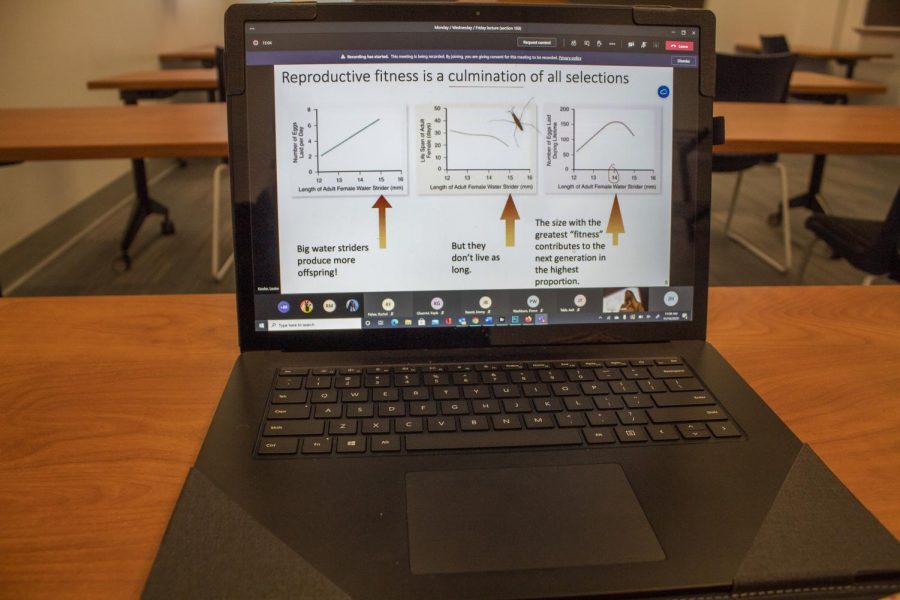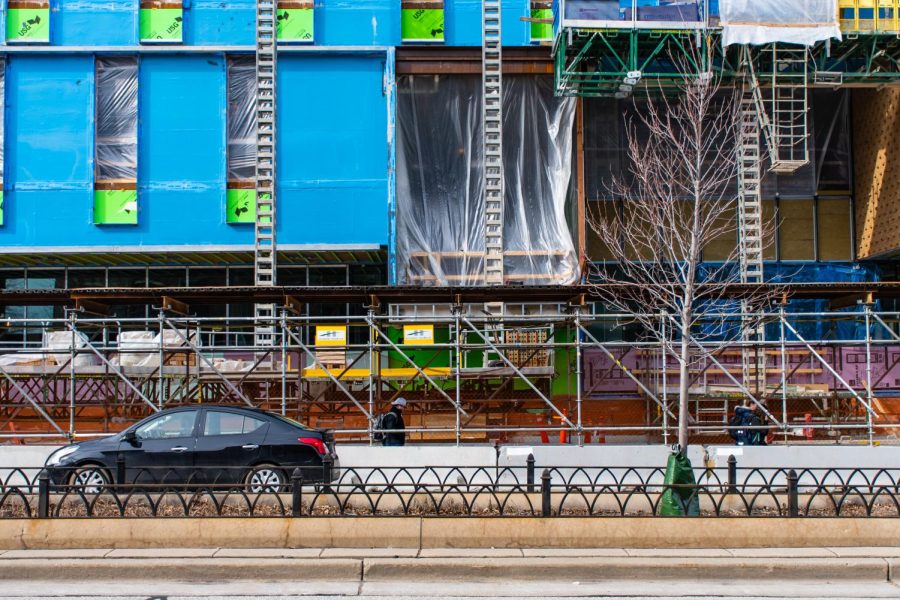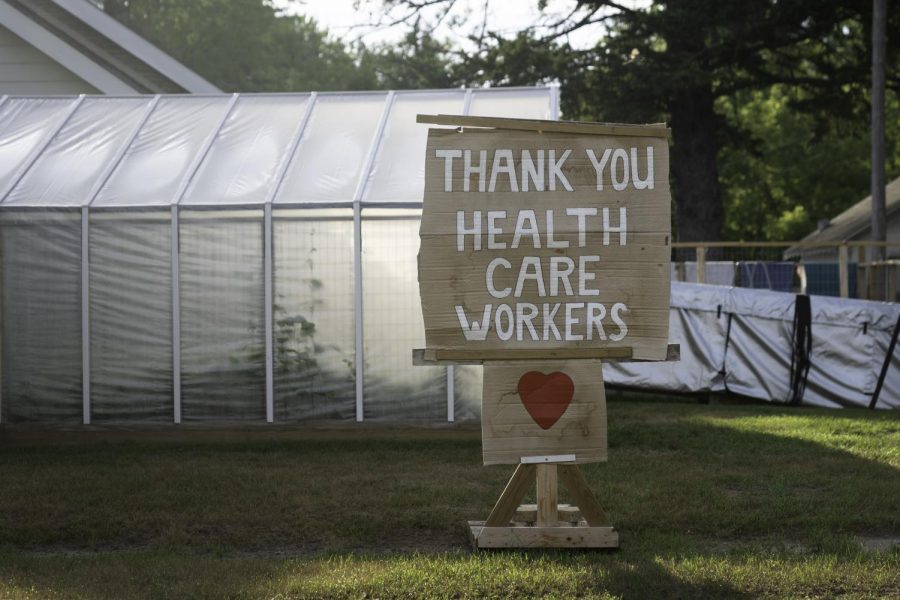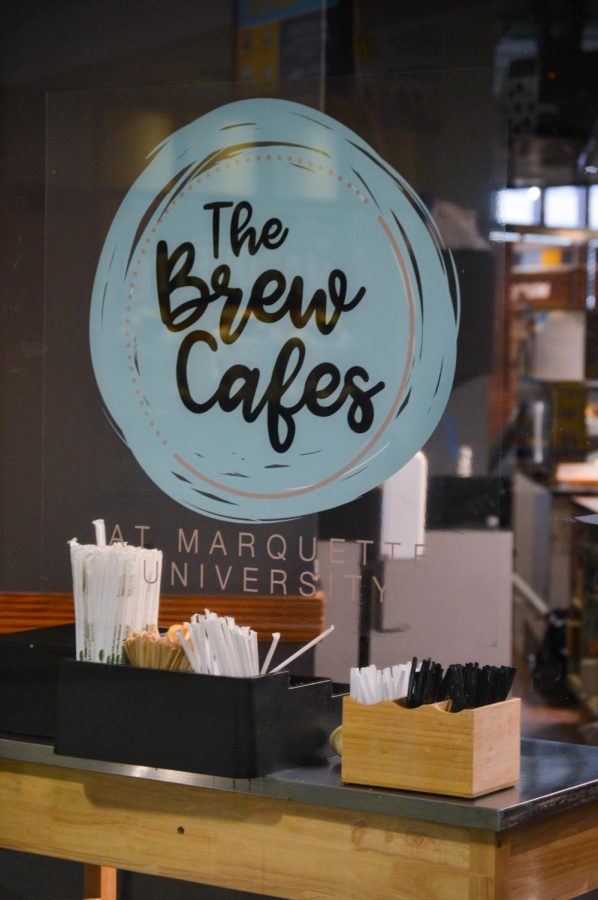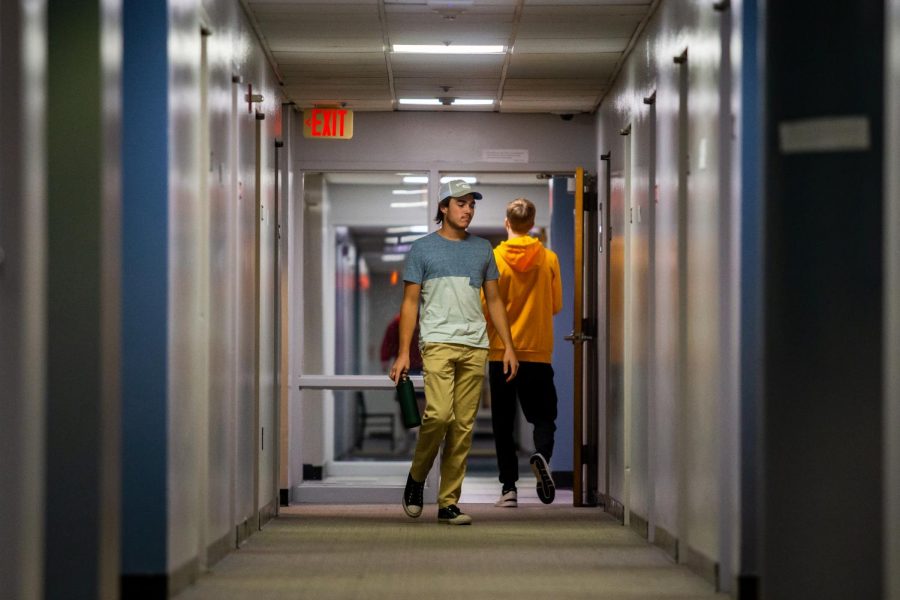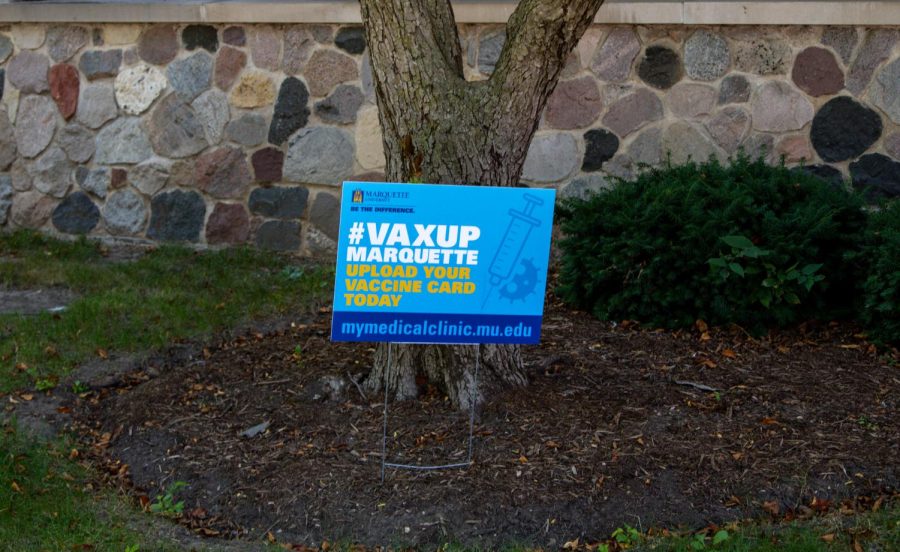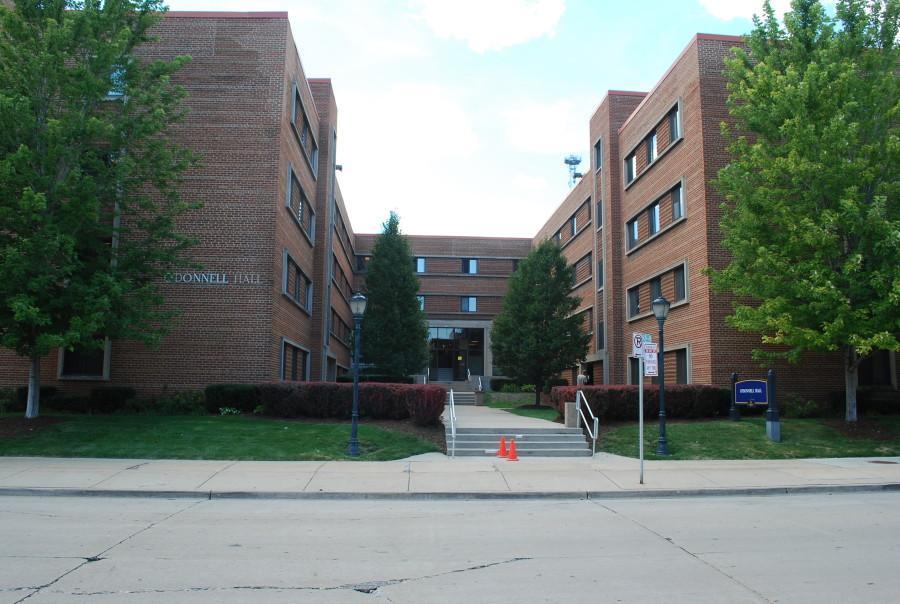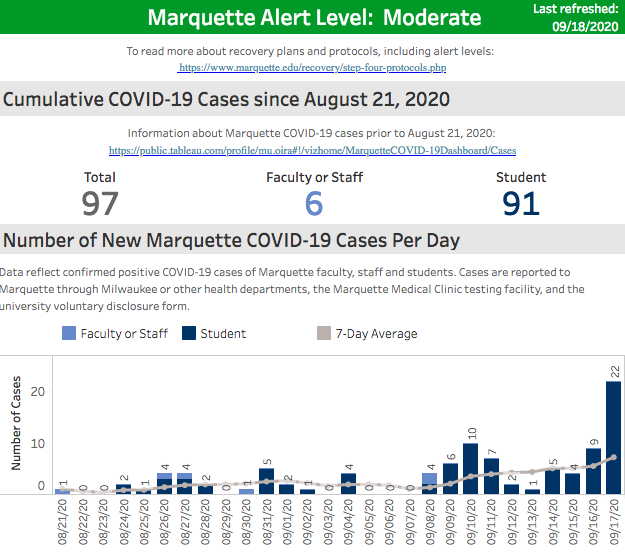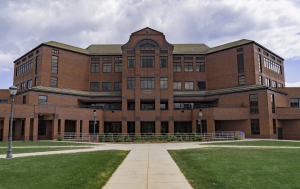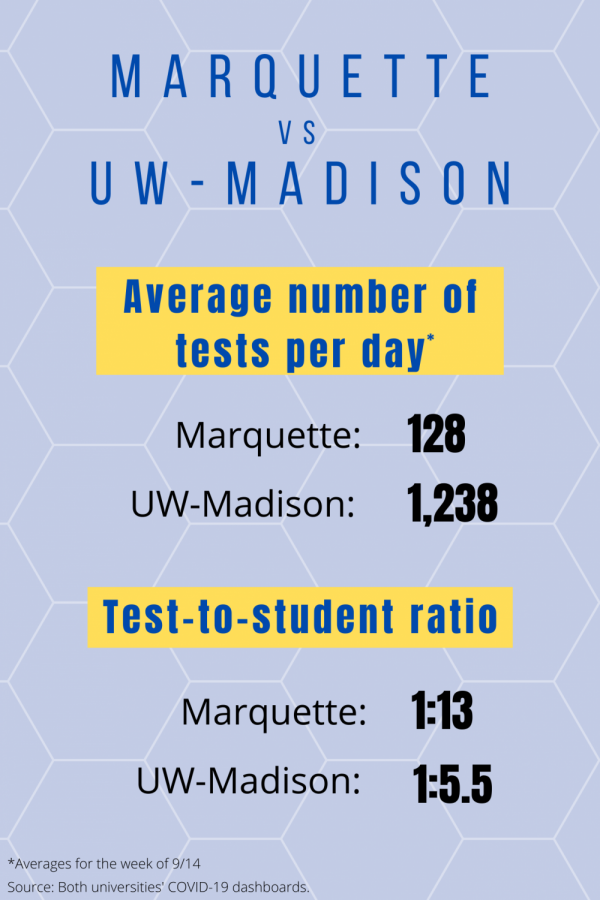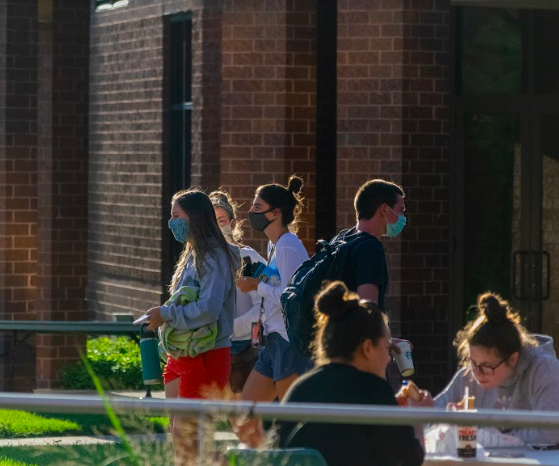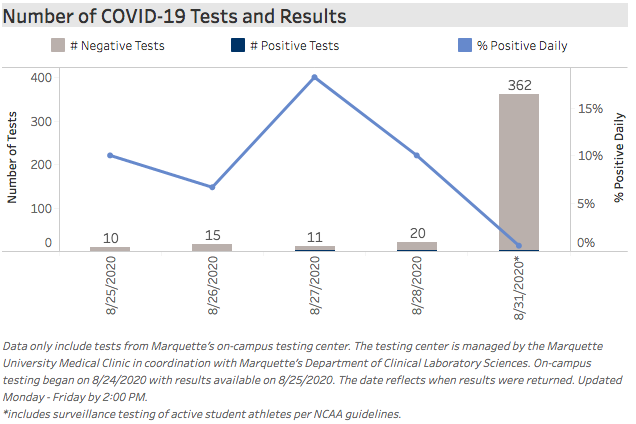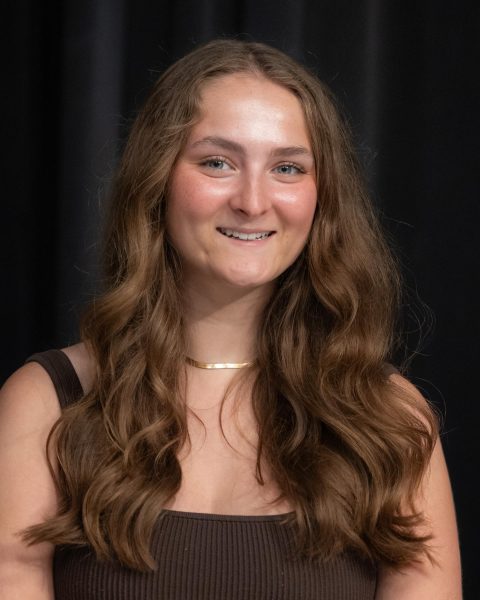Due to the increased COVID-19 alert level, some Marquette University professors have moved their classes online.
Between Aug. 21 and Nov. 16, there have been 841 confirmed COVID-19 cases on campus. Marquette responded to this issue by implementing certain changes across campus.
Indoor gathering spaces may only be used if a faculty or staff member is observing the students. Advising, academic meetings and tutoring will be held virtually unless an in-person meeting is approved by a department chair/college dean. Student clubs, organizations, and non-academic advising meetings must meet in a virtual setting. All group Department of Recreational Sports activities are cancelled. Finally, Marquette University Police Department will expand their enforcement connected to off-campus parties.
Although a high alert was declared, Marquette is not switching classes to a virtual setting. Individual professors have the choice to decide whether or not they want to remain in person.
Bryan Rindfleisch, an assistant professor of history, decided to transfer his classes online.
“Seeing cases rise in the hundreds is scary,” Rindfleisch said. “I don’t want to put my students at risk because those students are leaving campus in two weeks and if people get infected (with COVID-19) we kick them out of their dorms and they’re going to infect their families. That’s irresponsible and I don’t know who is making these choices so I don’t want to be a part of that. These students aren’t just students in my class, but are my advisees, majors in my program, really good human beings that I care about. I won’t let my class be a vector point of COVID-19 to their families.”
Still, there are classes being held in person. Because Marquette administration has not forced professors to make the switch, there are many that do not believe it is necessary.
Christopher Gooding, a visiting assistant professor of theology, decided not to move his classes because he has not been asked to yet.
“Half of my courses are about racial justice, and I figured that given the sometimes difficult nature of the subject matter, teaching all online would hurt my chances of building rapport with students, it makes things easier to talk about tough subjects,” Gooding said.
Dave Umhoefer, director of the O’Brien Fellowship in Public Service Journalism, chose to move his classes to a virtual setting back in October due to illnesses within the classroom, student quarantines and general caution. In-person attendance was lacking because of these issues, so Umhoefer said he believed it was best to transfer to online.
Umhoefer said he discovered virtual classes have been more convenient with COVID-19 spreading across campus everyday. Because his classes are so hands-on and frequently meet in small groups, he has found breakout rooms on Teams to be extremely beneficial to how his class adapted to online. He said he found this to be a positive because he is able to see all of his students without masks on which allows the students to be more responsive.
“The students really responded well to attendance, and participation went up 100%,” Umhoefer said. “So I think there were some real advantages to it in our class. I don’t know if it applies to every class, but I think that it played into our hands well with the kind of hands on work we were doing.”
“The semester has become progressively more challenging. I have more and more students that have to shift online every day. It has been noticeable.” Gooding said.
First semester instruction concludes on November 24, 2020. Students then have time off from school before final exams for Thanksgiving break. This year, final exams will be administered from December 2 to 9, 2020 in a remote setting.
This story was written by Julia Abuzzahab. She can be reached at julianna.abuzzahab@marquette.edu


